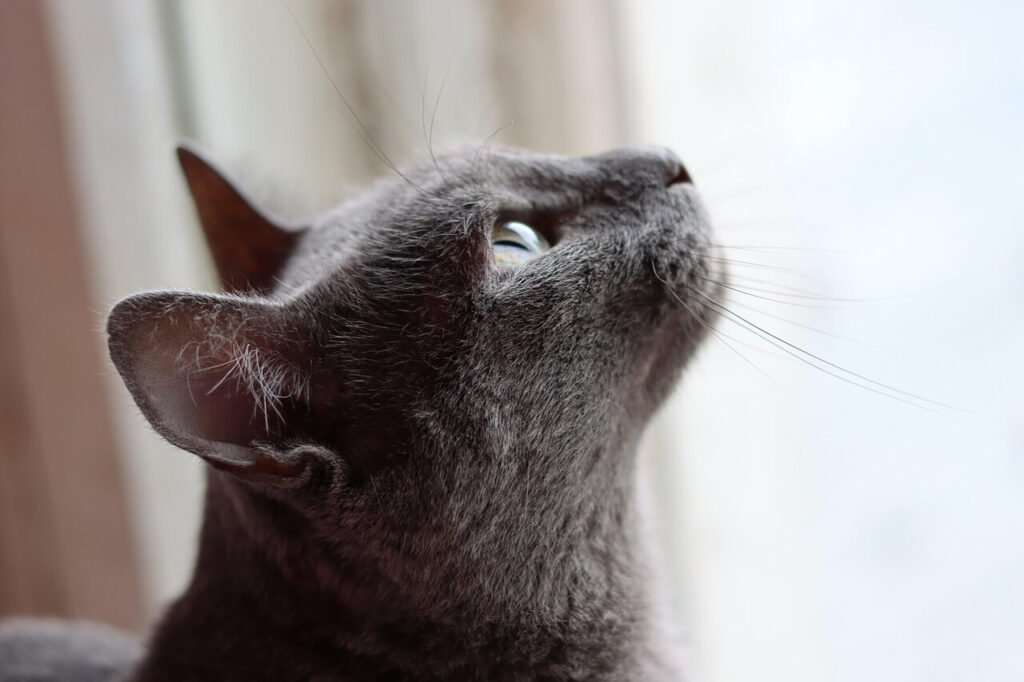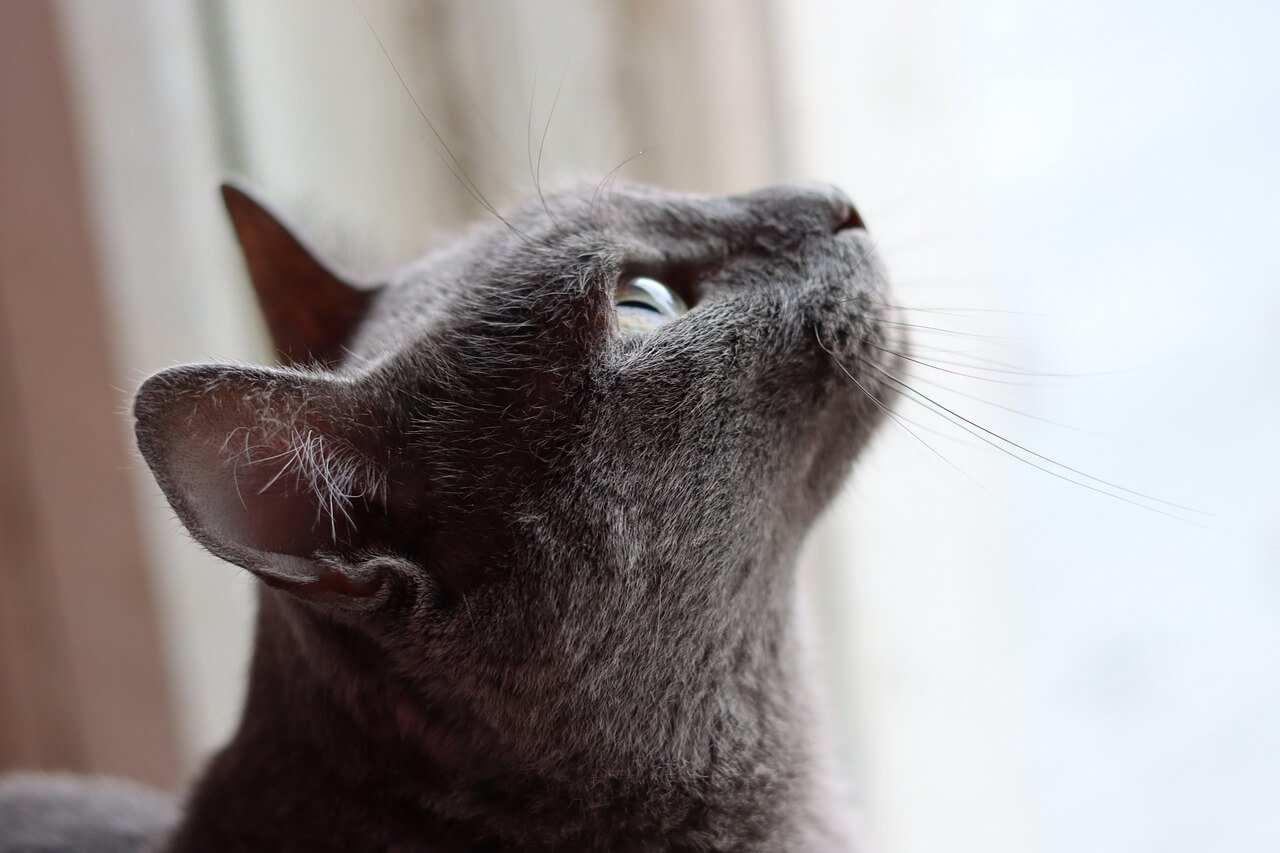Cats and Schizophrenia: Exploring the Connection
The relationship between cats and schizophrenia has sparked curiosity and debate among scientists, pet owners, and mental health enthusiasts alike. While cats are beloved companions for millions of people worldwide, some studies have raised questions about whether owning a cat could be linked to an increased risk of developing schizophrenia or related disorders. But before you start worrying about your feline friend, it’s important to approach this topic with nuance and evidence-based understanding. In this blog post, we’ll explore the potential connections, debunk myths, and provide practical insights into how cats might interact with human mental health. Whether you’re a cat lover or simply curious, this guide will help you separate fact from fiction.
What Does Science Say About Cats and Schizophrenia?
Scientific research on the connection between cats and schizophrenia is still evolving, but several key points have emerged over the years. Below is a summary of what experts currently understand:
Toxoplasma Gondii Hypothesis
Some studies suggest that Toxoplasma gondii , a parasite found in cat feces, may be linked to an increased risk of schizophrenia in humans. However, correlation does not imply causation.Early Exposure Matters
Research indicates that early childhood exposure to cats—and potentially Toxoplasma gondii —might play a role in altering brain development in susceptible individuals.Mixed Study Results
While some studies show a weak association between cat ownership and schizophrenia, others find no significant link, highlighting inconsistencies in the data.Genetic Predisposition
Experts emphasize that schizophrenia is largely influenced by genetic factors, and environmental triggers like cat ownership are unlikely to be the sole cause.Hygiene Practices Reduce Risk
Simple measures like washing hands after cleaning litter boxes can significantly reduce the risk of Toxoplasma gondii infection.
The scientific community continues to investigate this topic, but current evidence suggests that owning a cat does not directly cause schizophrenia. Responsible pet care and hygiene practices can mitigate any potential risks.
Potential Risks of Toxoplasma Gondii Exposure
While the connection between cats and schizophrenia remains inconclusive, Toxoplasma gondii itself is worth understanding due to its broader health implications. Here’s what you need to know about this parasite:
How Humans Get Infected
Humans can contract Toxoplasma gondii by accidentally ingesting oocysts (parasite eggs) from contaminated soil, water, or unwashed produce.Cats as Intermediate Hosts
Cats are the only animals that can shed Toxoplasma gondii oocysts in their feces, making them a potential source of exposure.Symptoms of Infection
Most healthy adults experience mild flu-like symptoms or no symptoms at all, but pregnant women and immunocompromised individuals are at higher risk.Impact on Brain Chemistry
Some studies suggest that Toxoplasma gondii may alter dopamine levels in the brain, which could theoretically influence mental health conditions like schizophrenia.Prevention Is Key
Practicing good hygiene and avoiding raw or undercooked meat can help prevent Toxoplasma gondii infection.
Understanding these risks underscores the importance of responsible cat ownership and proper hygiene to minimize potential health concerns.
Check this guide 👉How Big Are Cat Brains? Best 7 Expert Tips!

Ways to Reduce Toxoplasma Gondii Risk | Signs of Toxoplasma Gondii Infection |
|---|---|
Wash hands after handling cat litter | Flu-like symptoms (fatigue, fever) |
Avoid touching your face while cleaning | Swollen lymph nodes |
Keep cats indoors to limit parasite exposure | Muscle pain or weakness |
Cook meat thoroughly before consumption | Confusion or neurological symptoms |
Wear gloves when gardening | Severe complications in pregnancy |
Debunking Myths About Cats and Mental Health
Misinformation about cats and their impact on mental health can lead to unnecessary fear. Let’s address some common myths and clarify the facts:
Myth: Owning a Cat Always Increases Schizophrenia Risk
Fact: The vast majority of cat owners do not develop schizophrenia, and other factors like genetics play a much larger role.Myth: All Cats Carry Toxoplasma Gondii
Fact: Not all cats carry the parasite, and indoor cats are less likely to be exposed compared to outdoor cats.Myth: Cleaning Litter Boxes Is Dangerous
Fact: With proper hygiene, such as wearing gloves and washing hands, cleaning litter boxes poses minimal risk.Myth: Schizophrenia Can Be “Caught” from Cats
Fact: Schizophrenia is a complex disorder influenced by genetics and multiple environmental factors—not something you can “catch.”Myth: Cats Are Harmful to Mental Health
Fact: Many studies show that pets, including cats, can improve mental well-being by reducing stress and loneliness.
By addressing these misconceptions, we can foster a more balanced perspective on the relationship between cats and mental health.
How Cats Can Positively Impact Mental Health
Despite concerns about Toxoplasma gondii , cats offer numerous benefits for mental health that shouldn’t be overlooked. Here’s how having a feline companion can enhance your well-being:
Stress Reduction
Petting a cat releases oxytocin, a hormone associated with relaxation and bonding, helping to lower stress levels.Companionship
Cats provide unconditional love and companionship, which can combat feelings of loneliness and depression.Routine and Responsibility
Caring for a cat encourages structure and purpose in daily life, which can benefit individuals managing mental health challenges.Improved Mood
Watching playful kittens or cuddling with a purring cat can boost serotonin levels and improve overall mood.Mindfulness Practice
Interacting with cats promotes mindfulness, encouraging you to focus on the present moment rather than worries or anxieties.
These positive effects highlight why cats remain cherished companions for so many people, even amid ongoing discussions about their potential health risks.
Understanding the Role of Genetics in Schizophrenia
While the discussion around cats and schizophrenia often focuses on environmental factors, genetics remain a cornerstone of this complex disorder. Here’s a breakdown of how genetics influence schizophrenia and why they matter more than external triggers:
Family History Plays a Key Role
Studies show that individuals with a first-degree relative (parent or sibling) diagnosed with schizophrenia have a higher risk of developing the condition themselves.Twin Studies Highlight Genetic Influence
Identical twins, who share 100% of their DNA, have a significantly higher concordance rate for schizophrenia compared to fraternal twins.Polygenic Risk Factors
Schizophrenia is believed to result from the interaction of multiple genes, each contributing a small effect rather than a single “schizophrenia gene.”Environmental Triggers Are Secondary
Even in genetically predisposed individuals, environmental factors like stress or infections typically act as secondary triggers rather than primary causes.Ongoing Research Is Crucial
Scientists continue to explore the genetic underpinnings of schizophrenia to develop better diagnostic tools and treatments.
Understanding the genetic basis of schizophrenia helps clarify why external factors, such as owning a cat, are unlikely to be the sole cause of the disorder.
Tips for Reducing Stress Around Cat Ownership
For those concerned about the potential risks associated with cats and mental health, managing stress can go a long way in maintaining overall well-being. Here are some practical tips for reducing stress while enjoying your feline companion:
Establish a Cleaning Routine
Set a regular schedule for cleaning the litter box to minimize exposure to any potential risks, such as Toxoplasma gondii .Create a Safe Space for Your Cat
Designate an area where your cat can play and relax, reducing household chaos and promoting a calm environment.Practice Mindful Interactions
Spend time engaging in activities like petting or playing with your cat to focus on the present moment and relieve anxiety.Seek Professional Advice if Needed
If you’re feeling overwhelmed, consult a mental health professional to discuss strategies for managing stress and anxiety.Balance Responsibilities
Delegate tasks like feeding or grooming to family members to ensure cat ownership doesn’t become overwhelming.
By incorporating these practices, you can enjoy the benefits of cat ownership while minimizing stress and maintaining peace of mind.
Fun Facts About Cats and Human Health
Cats have been companions to humans for thousands of years, and their impact on our lives extends beyond just emotional support. Here are some intriguing facts about how cats influence human health:
Purring Has Healing Properties
A cat’s purr vibrates at frequencies that may promote healing, reduce pain, and improve bone density in humans.Cat Owners Have Lower Risk of Heart Disease
Studies suggest that owning a cat can lower blood pressure and reduce the risk of heart attacks and strokes.Cats Can Detect Illness
Some cats have been known to sense changes in their owner’s health, such as detecting seizures or low blood sugar levels before they occur.Cats Reduce Allergy Development in Children
Exposure to cats during infancy may help children develop stronger immune systems and reduce the likelihood of developing allergies later in life.Cats Encourage Social Interaction
Talking about your cat or sharing photos can serve as a conversation starter, helping combat feelings of isolation.
These fascinating insights highlight the unique bond between cats and humans, showcasing how these furry companions contribute positively to our physical and mental well-being.
Frequently Asked Questions About Cats and Schizophrenia
Can owning a cat cause schizophrenia?
No, owning a cat does not directly cause schizophrenia. While there is some research suggesting a weak association between Toxoplasma gondii and schizophrenia, genetics and other factors play a much larger role.
Should I get rid of my cat if I’m worried about schizophrenia?
There’s no need to rehome your cat. Practicing good hygiene, such as washing hands after handling litter, can significantly reduce any potential risks.
What is Toxoplasma gondii ?
It’s a parasite found in cat feces that can infect humans. Most people experience mild or no symptoms, but it’s important to practice prevention, especially during pregnancy.
Are indoor cats safer than outdoor cats?
Yes, indoor cats are less likely to encounter Toxoplasma gondii because they don’t hunt prey or come into contact with contaminated environments.
Can cats improve mental health?
Absolutely! Cats can reduce stress, provide companionship, and promote emotional well-being through their calming presence.
Balancing Facts and Fears: Cats and Mental Health
The topic of cats and schizophrenia is complex, but it’s clear that the benefits of owning a cat far outweigh the minimal risks for most people. By practicing responsible pet care and maintaining good hygiene, you can enjoy the companionship of a feline friend without undue worry. Remember, mental health is influenced by a combination of genetic, environmental, and lifestyle factors, and owning a cat is just one small piece of the puzzle. Whether you’re a lifelong cat lover or considering adopting one, rest assured that these furry companions bring joy, comfort, and countless moments of happiness into our lives.
Cat Anaphylactic Shock Treatment Costs: Best 7 Expert Tips! – Learn about costs, treatments, and financial aid options to save your cat’s life.
Exocrine Pancreatic Insufficiency in Cats: Best 7 Tips! – Learn to spot symptoms, manage EPI effectively, and improve your cat’s quality of life with expert advice.
Cost of Dog Anaphylactic Shock Treatment: Best 7 Tips! – Learn about emergency costs, financial planning, and ways to manage expenses for your dog’s care.
Exocrine Pancreatic Insufficiency in Dogs: Best 7 Tips! – Learn to spot symptoms, manage EPI effectively, and improve your dog’s quality of life with expert guidance.





